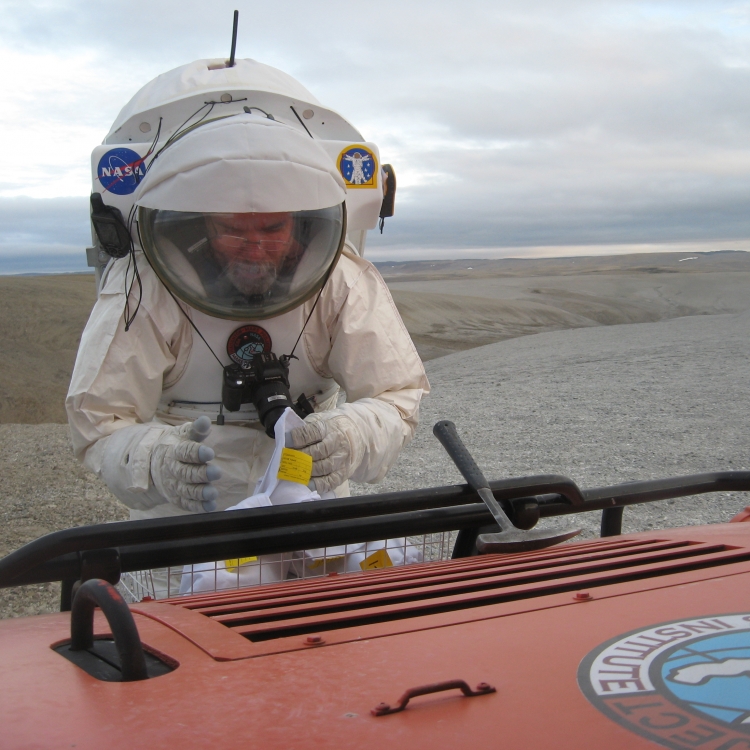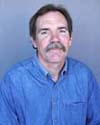
Astronauts, Robots, & Rocks: Preparing for Geological Planetary Exploration
OCTOBER 27, 2011
Dr. Mark Helper
The University of Texas at Austin
What is the talk about?
Imagine yourself as a scientist visiting a research site on the moon for the first time, using new ways to understand the unexplored territory around you. Geologist Dr. Mark Helper will bring this scenario to life, presenting how his expertise in geological field research is assisting NASA develop new techniques for human planetary exploration. Dr. Helper will tell us of training astronauts to do geological field work, and of work with NASA roboticists at a large Canadian impact crater to test the use of robots as an aid to human planetary exploration.
About our presenter

Dr. Mark Helper
Dr. Mark Helper is a Distinguished Senior Lecturer in the Department of Geological Sciences at the University of Texas Jackson School of Geosciences. He teaches undergraduate courses in introductory and advanced Field Geology, GIS and GPS Applications in the Earth Sciences, and Gems and Gem Minerals, and lectures and leads field trips for other undergraduate and graduate classes. His current research explores geochemical and Isotopic similarities of Proterozoic and Archean crust in East Antarctica and the southwestern U.S. As co-chair of FEAT (Field Exploration and Analysis Team), Dr. Helper is also involved in the geological field training of astronauts and allied activities, in preparation for NASA’s return to the Moon.
Videos & Podcasts
Presentations
Lesson Plans
- Destination to Mars (Middle & High School)
- Launch It (Middle & High School)
- Lunar Surface Investigation (Middle & High School)
- Modeling Impact Craters (Middle & High School)
- Reaping Rock (Elementary & Middle School)
- Spray Bottle Solar System (Elementary & Middle School)